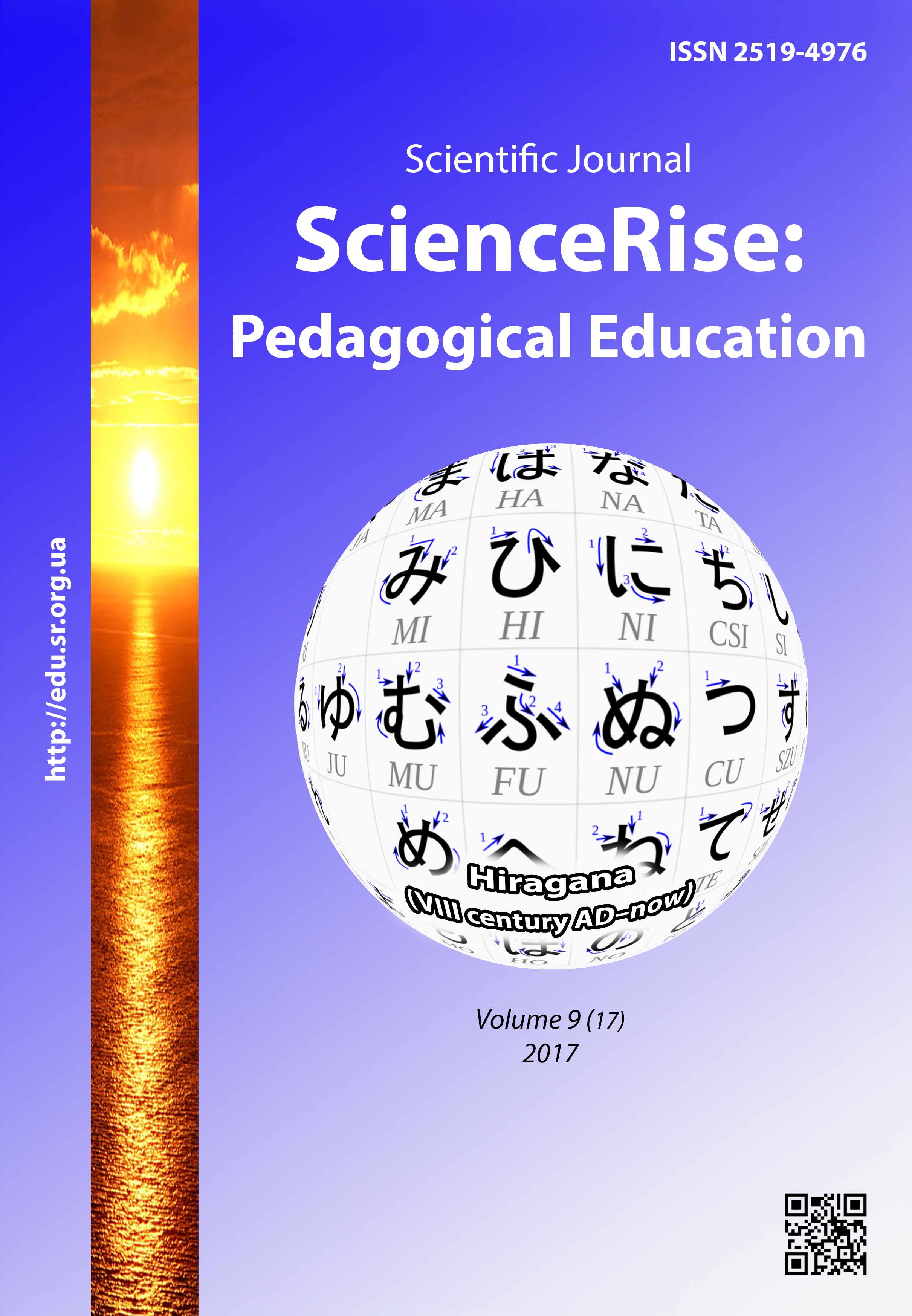Diagnostics of readiness of future junior specialists with medical education to professional self-development: ascertaining stage of pedagogical experiment
DOI:
https://doi.org/10.15587/2519-4984.2017.111030Keywords:
pedagogical experiment, ascertaining stage, junior specialist, professional self-development, professional trainingAbstract
The article elucidates the aspects of diagnostics of the output states of the formation of readiness of future junior specialists with medical education to the professional self-development; the analysis of the obtained results was carried out.
There was substantiated the topicality of the formation of readiness of future junior specialists with medical education to the professional self-development in the process of professional training.
The aim of the ascertaining stage of the pedagogical experiment of the formation of readiness of future junior specialists with medical education to the professional self-development in the process of professional training was elucidated, main principles and methods were established, general logic was determined.
The ascertaining stage of the pedagogical experiment determined: the level of readiness to the professional self-development in practicing junior specialists with medical education; the level of erudition of graduates of medical colleges in the problem of professional self-development; the level of topicality and importance of the problem of professional elf-development of junior specialists with medical education; the level of readiness of teachers of clinical disciplines in medical colleges to the formation of readiness of future junior specialists to the professional self-development in the process of professional training. There were studied the possibilities and methods of the formation of readiness of future junior specialists with medical education to the professional self-development
References
- Vaynilenko, T. V. (2005). The essence and content of vocational and pedagogical self-improvement. Scientific Herald of the Chernivtsi University. Series: Pedagogy and Psychology, 278, 13–20.
- Shestakova, T. V. (2006). Formation of preparedness of future teachers for professional self-improvement. Kyiv, 22.
- Kvas, V. M. (2015). The problem of forming the readiness of future teachers for professional self-improvement. Scientific Papers of the KPUU. Series: Pedagogical Sciences, 141 (2), 120–123.
- Dudikova, L. V. (2011). Formation of readiness for professional self-improvement of future doctors. Vinnytsia, 23.
- Sotskyi, K. O. (2016). Formation of readiness of future junior medical specialists for professional self-improvement. Khmelnytsky, 314.
- Granychyna, O. A. (2012). Mathematical and statistical methods of psychological and pedagogical research. Saint Petersburg: ВВМ, 115.
- Zagviazinsky, V. I., Atahanov, R. (2006). Methodology and methods of psycho-pedagogical research. Moscow: Publishing Center "Academy", 208.
- Dolgopolova, A. F., Gulai, T. A., Lytvyn, D. B., Meleshko, S. V. (2012). Theory of Probability and Mathematical Statistics. International Journal of Experimental Education, 11, 51–52.
- Sysoeva, S. O., Kristopchuk, T. Ye. (2013). Methodology of scientific and pedagogical research. Rivne: Volyn's amulets, 360.
- Pedagogical Experiment in the System of Innovative Educational Activities (2014). Khmelnytsky: HOIPPO, 126.
Downloads
Published
How to Cite
Issue
Section
License
Copyright (c) 2017 Olena Solodovnyk

This work is licensed under a Creative Commons Attribution 4.0 International License.
Our journal abides by the Creative Commons CC BY copyright rights and permissions for open access journals.
Authors, who are published in this journal, agree to the following conditions:
1. The authors reserve the right to authorship of the work and pass the first publication right of this work to the journal under the terms of a Creative Commons CC BY, which allows others to freely distribute the published research with the obligatory reference to the authors of the original work and the first publication of the work in this journal.
2. The authors have the right to conclude separate supplement agreements that relate to non-exclusive work distribution in the form in which it has been published by the journal (for example, to upload the work to the online storage of the journal or publish it as part of a monograph), provided that the reference to the first publication of the work in this journal is included.







